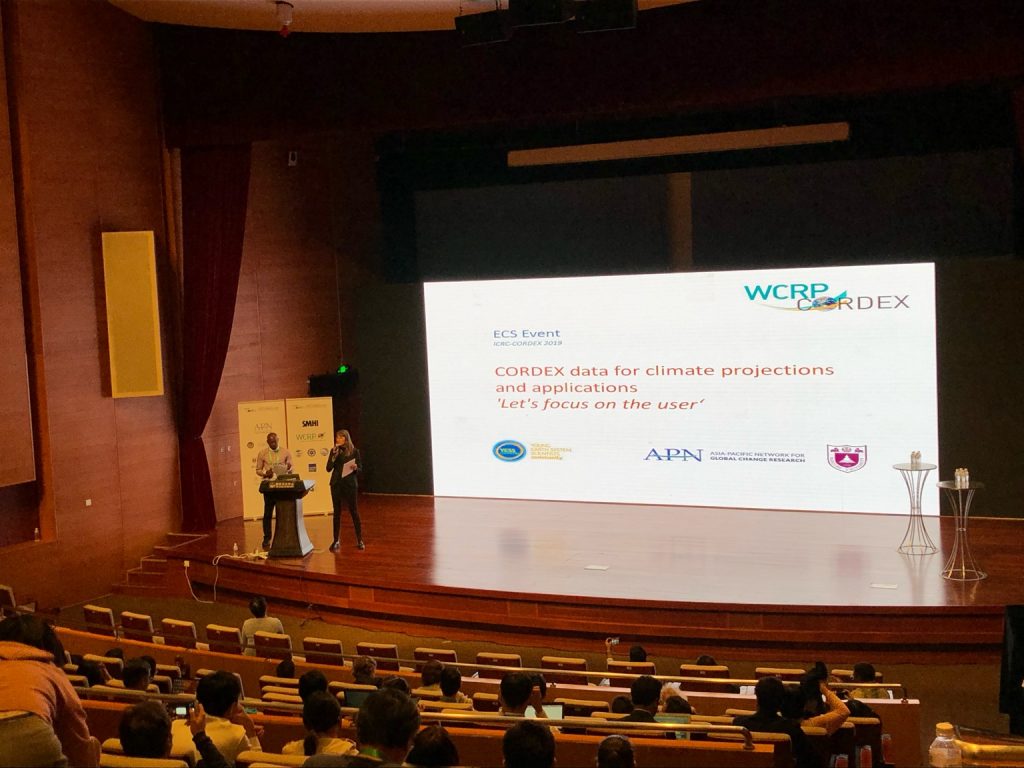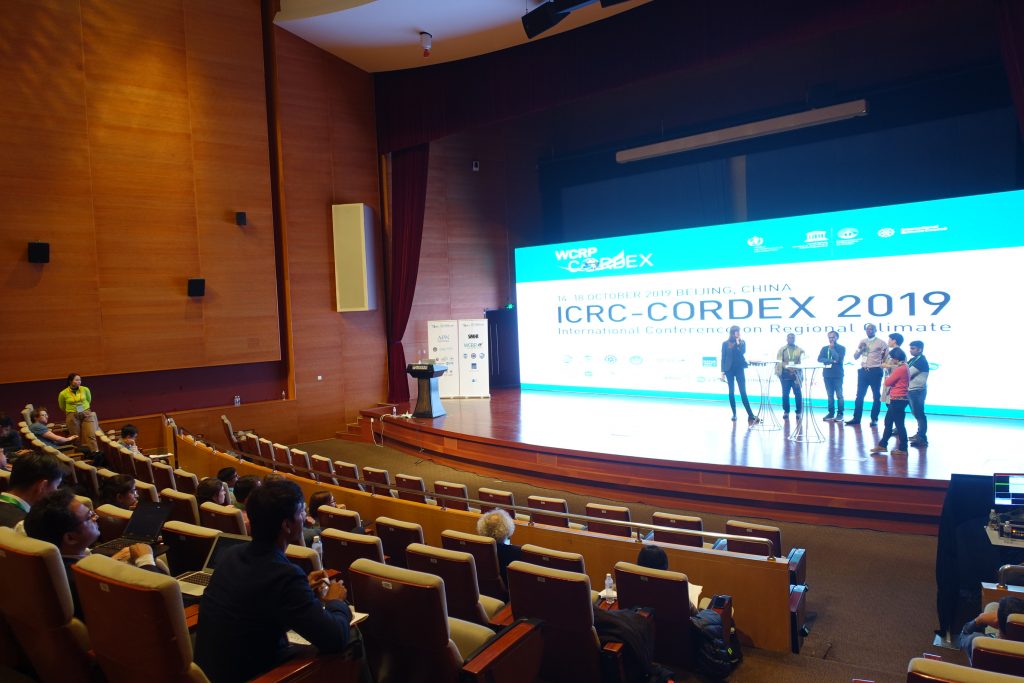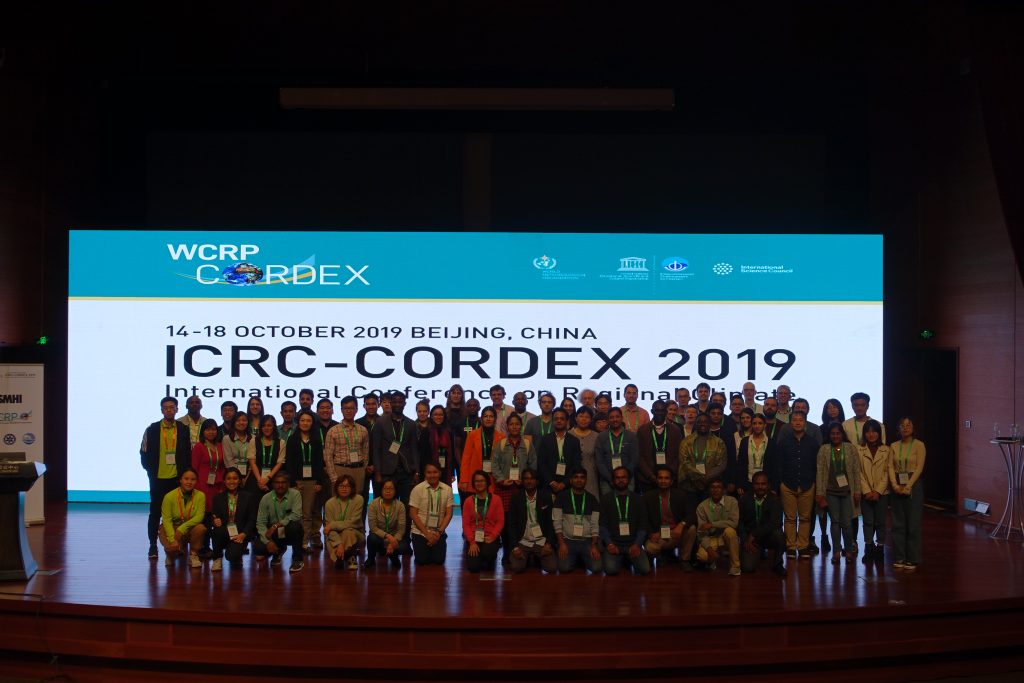Let’s focus on the user: CORDEX datasets for climate projections and applications – an early career dialogue
International Conference for Regional Climate
CORDEX, 14-18 October, Beijing, China
‘Users can motivate your work’. User interaction and the suitability of CORDEX data and information products to accommodate user needs were the main focus of the early career scientist event, during the CORDEX International Conference for Regional Climate 2019 (ICRC-CORDEX 2019).

Challenges and opportunities were discussed through an expert presentation, short reflections by early career researchers, as well as an interactive dialogue with the audience. Dr. Ailikun, an expert scientist on regional climate currently working at the Alliance of International Scientific Organisations in the Belt and Road Region(ANSO), presented her vision on ways forward to bring relevant regional climate science to society. The climate information shall be credible, salient and legitimate. This demands robust climate change data and information products. One important challenge to consider in the future would be to include a human component in regional climate models. To tailor climate information to users, Dr. Ailikun stressed that a co-production and co-design approach would be desired to better understand the user needs and work on a continuous iterative basis towards useful climate information to support mitigation and adaptation to climate change.
Four early career scientists presented their short reflections on challenges and opportunities on the application of CORDEX data and user interactions. Ester Salimun outlined that users could be made more aware of the available data and how to process it, as well as that open access to the data should be improved for IAV communities. Anubhav Choudhary and Dhirendra Kumar jointly discussed to further ensure users understand the biases and uncertainties in the projections, as well as to become further aware of user needs in user-oriented workshops. Improved understanding of who the user exactly is, was highlighted by Miriam Murambadoro. She also elaborated on the need for continuous engagement and for the integration of participatory approaches in knowledge production.

An interactive dialogue between the audience and the presenters took place after the presentations. A wide range of topics were discussed. The discussion emphasized the need to engage in user interaction to further develop regional climate science and also highlighted the challenge to foster the next generation of early career scientists with a user-aware scope while retaining a scientifically solid disciplinary foundation. Notably, the need for capacity building and interactive platform for users of CORDEX products was also highlighted. The early career event was an opportunity to share ideas and discuss ways forward among early career researchers on how to interact with the user and to explore the suitability of CORDEX data and information products to accommodate user needs. After the event drinks and bites were served to enable direct interaction between the early career scientists as well as between the more senior scientists present.

Organizers: Young Earth System Scientists Community (YESS) & CORDEX conference Organising Committee
Sponsors: WCRP, CORDEX, APN, NJU
Presentations by:
Dr. Ailikun–ANSO, Alliance of International Scientific Organisations in the Belt and Road Region.
Title presentation: ‘From CORDEX data to information and user interaction’
Ester Salimun – Ken Bangsaan University, Malaysia
Anubhav Choudhary – Karlsruhe Institute of Technology, Germany &
Dhirendra Kumar – Jawaharlal Nehru University, India (joint presentation)
Miriam Murambadoro – South African Weather Service, South-Africa
Moderators:
Gaby Langendijk – Climate Service Center Germany (GERICS), HZG, Germany
Victor Dike – Institute of Atmospheric Physics (IAP), CAS, China
More information and download the ECS event report here.
